Reading Improvement Normal Building Vocabulary Worksheets for Ages 7-9
5 filtered results
-
From - To
Discover our "Reading Improvement: Building Vocabulary Worksheets for Ages 7-9" tailored to support young readers in expanding their word knowledge. These engaging worksheets are designed to enhance vocabulary skills through a variety of fun and interactive exercises. Ideal for 2nd to 4th graders, our resources focus on context clues, synonyms, antonyms, and more, catering specifically to diverse learning needs. Perfect for classroom or home use, these worksheets help foster a love for reading while developing critical language abilities. Empower your child to excel in reading comprehension and communication with our expertly crafted vocabulary-building tools.
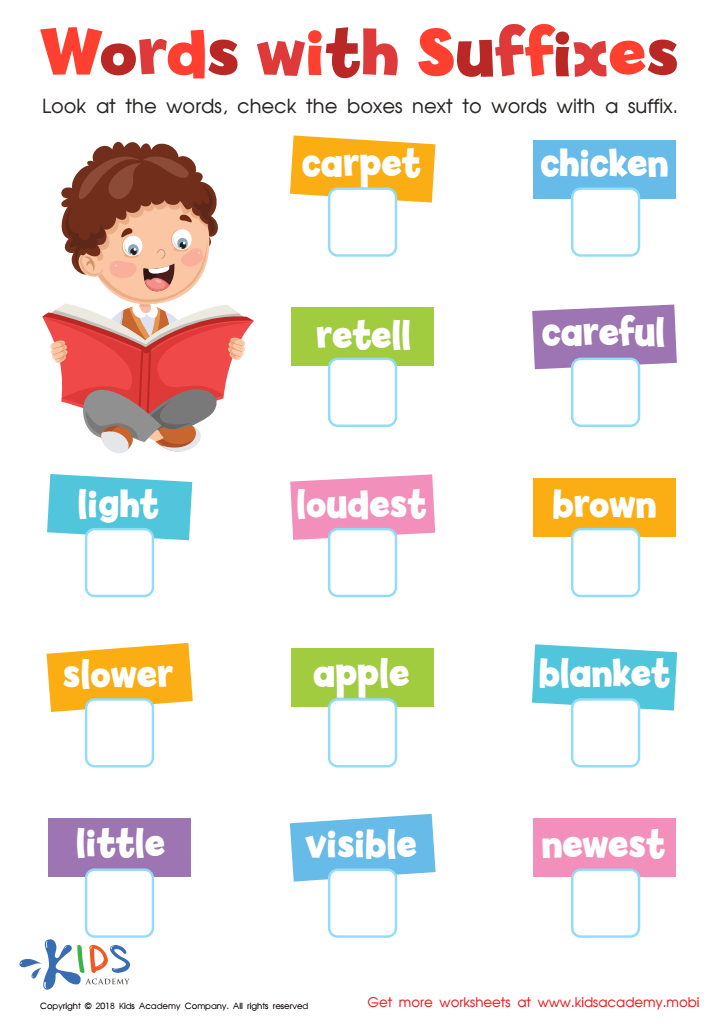

Reading: Words With Suffixes Worksheet
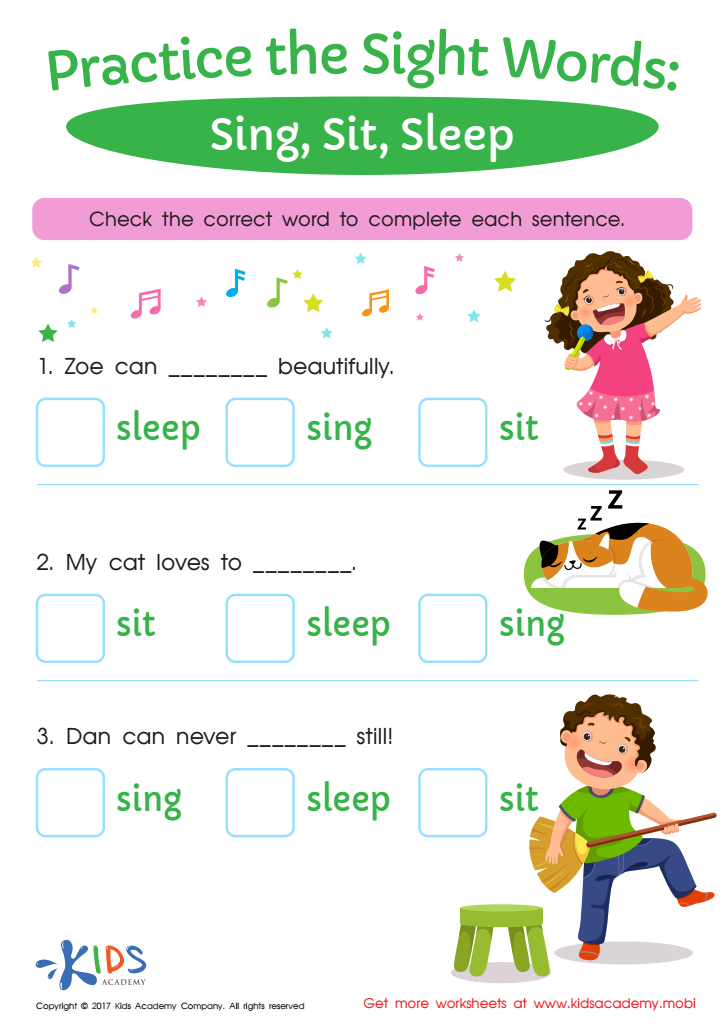

Sing, Sit, Sleep Sight Words Worksheet
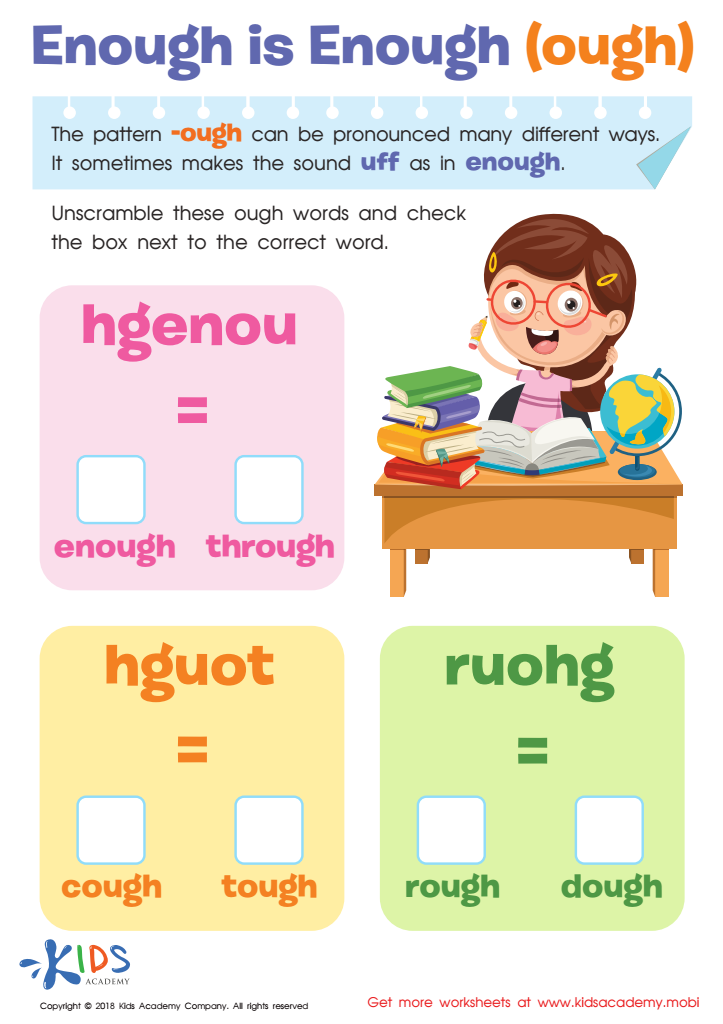

Enough Is Enough (ough) Worksheet
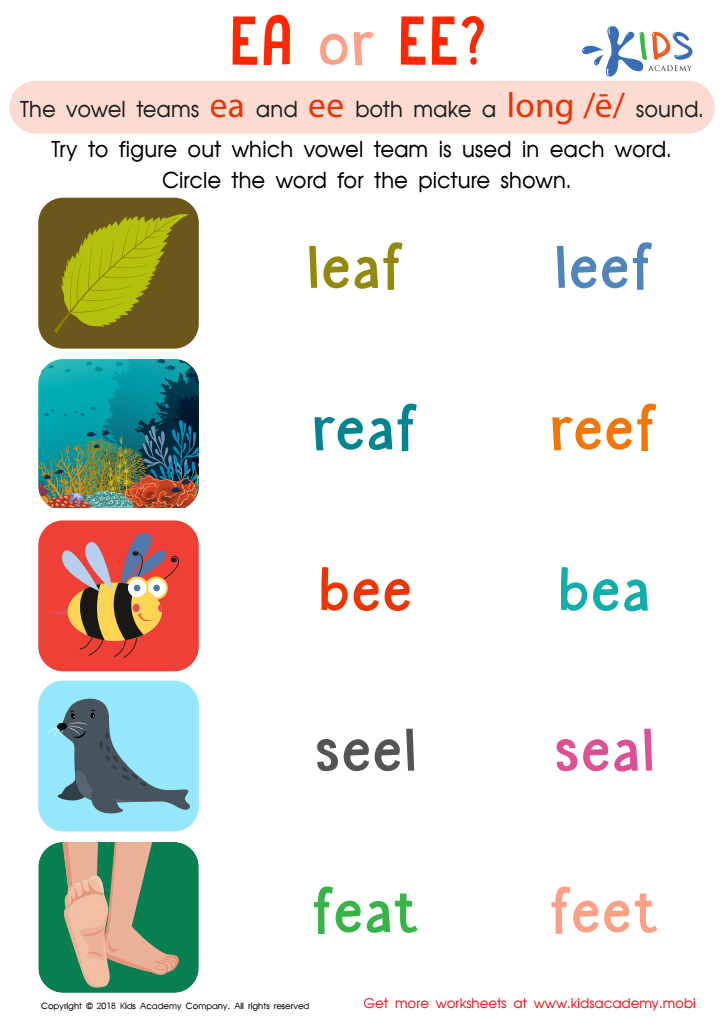

Reading: EA and EE Worksheet
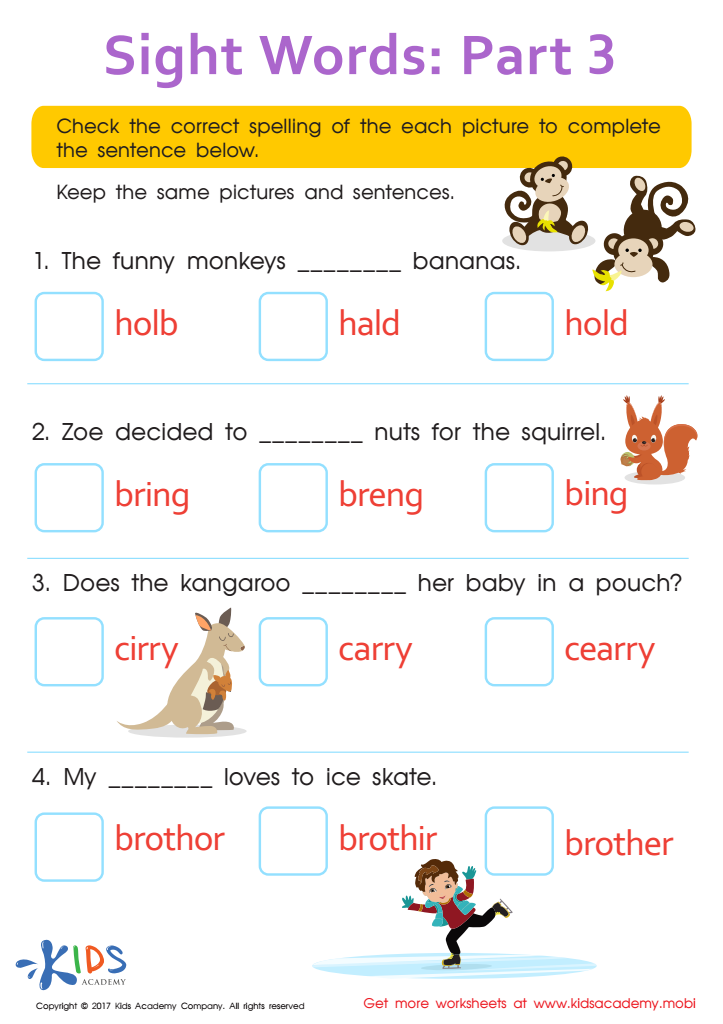

Hold, Bring, Carry, Brother Sight Words Worksheet
Parents and teachers play a pivotal role in children's reading and vocabulary development, particularly between the ages of 7 and 9. At this stage, children's cognitive abilities and restless curiosity bloom, making it a critical period for developing foundational literacy skills.
Reading improvement is paramount because it not only enhances academic performance but also fosters a lifelong love of learning. By practicing reading, children better grasp language structures, improve comprehension skills, and gain confidence in their abilities. Early proficiency in reading correlates with higher academic achievement in later grades; hence, investing time and effort now sets the stage for future educational success.
Building a robust vocabulary is equally significant. Words are the currency of thought, and a broad vocabulary allows children to express themselves more precisely and creatively. It enhances their understanding of complex texts and boosts their communication skills, which are essential for teamwork and social interactions. Beyond the academic realm, a rich vocabulary empowers children to engage with the world more profoundly, fostering critical thinking and problem-solving skills.
For parents and teachers, emphasizing reading and vocabulary improvement isn't merely an academic task—it's an investment in the child's overall development. Children who are strong readers and communicators are better equipped to navigate life, succeed in various arenas, and adapt to new challenges with confidence.

 Assign to My Students
Assign to My Students
















